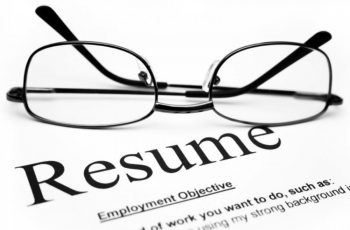Employee Care: Why It Is Dangerous To Compare Your Employees
When we talk about careers and boss-workers relationship, it is because so many people have become entrepreneurs by becoming successful in their chosen career. Today, we will look at one very important aspect of employee care. You will learn why it is dangerous to compare your employees.
For the avoidance of doubt, competition is a necessary motivating factor in the lives of workers. However, it has to be healthy.
As the boss, you can always have your assessment and know how to bring the lagging party up to speed but comparing employees’ performance in their presence most times ends in negativity.
It is possible that on the part of the workers, they compare themselves with others and comparing yourself to coworkers can b positive or negative too depending on the motive and response. It could just motivate you or it could make you become envious.
Related: How to effectively hire the best employees for a startup in Nigeria
We can’t deny that it is a natural phenomenon to compare people but it could end up on the negative side. Whatever the motive is, you will always find the wrong outcome. Don’t forget, it is in your interest to keep your employees united and happy.
You will find out in this piece that it is dangerous to compare your employees and I hope that you develop subtle methods of comparing your employees other than a blatant recourse to open comparison. This does not suggest that you treat your workers with kid gloves but it does suggest a change in tact and trust me, the outcome will be awesome.
Why It Is Dangerous To Compare Your Employees

-
It discourages individuality
It is dangerous to compare your employees because it takes a toll on individuality. The employees have a different skill set and you should exploit them. If you compare them, you are likely going to turn up with people possessing the same skill set and that takes diversity away from you. I know you don’t want that.
Related: 4 ways of making new employees feel important in their new place of work
According to Regier, “Humans are motivated differently, have different strengths, and are led differently. Comparing them implies that what works for one should work for another. It simply isn’t true in many cases.”
What you should do is know the strengths and weaknesses of your employees. Of course, they always have them. Work on enhancing their strengths and reducing the effects of their weaknesses.
We are not saying you should accept certain human failures; in fact, there are certain things you should never tolerate but there are certain intrinsic features that they can’t do away with. Those are the ones you will find a way to put up with. An introverted has to be treated differently from an extroverted person and instances like that.
-
It leads to unhealthy competition
Here is the thing; competition is very good but when it is unhealthy, it becomes something else and it becomes very bad. In fact, it becomes quite destructive. When you compare people, they may do what it takes, good or bad to become better and sometimes, they try to outfox themselves and take the praise.
This is why it is dangerous to compare your employees. According to Nick Glassett, comparing workers “creates a culture of competition around ‘me’ instead of a culture around ‘us’. The environment will get very competitive indeed, but a large part of the culture will be about holding others down so they look better, or at least wishing others to fail so as to look good in comparison.”
-
Prevents collaboration
When there is extreme and negative competition, the natural outcome is the death of collaboration. How can you work together effectively with a perceived enemy? It just doesn’t make sense and that why it is dangerous to compare your employees. You could end up at this point.
Let us also be honest, when people are competing, it is possible that there will be an increase in the productivity in the immediate instance but it cannot be sustained over time. Innovation that would have come from teamwork will be stifled and people will struggle to get one over their foes.
The emphasis should be on the company. When you one-up each other, the company loses. Don’t forget that.
When people are competing against each other, they often fail to work with each other. Because of this, innovation often halts or slows.
-
Destroys self-esteem
Self-esteem and confidence are important in the lives of your employees. They need that to perform optimally. Constant comparison always dents the self-esteem of your workers.
Reiger puts it that “self-esteem is a slippery slope. Social comparison boosts (or breaks) self-esteem. Self-esteem is not a robust predictor of behavior because it connects a person’s worth to how they stack up to others.”
The thing that is expected of you is to motivate your employees so that they can become a better version of whom they are. They need to increase what they can offer because it is in them and not because the other employee has what it takes. They need to work confidently on themselves and that comes with self-belief.

